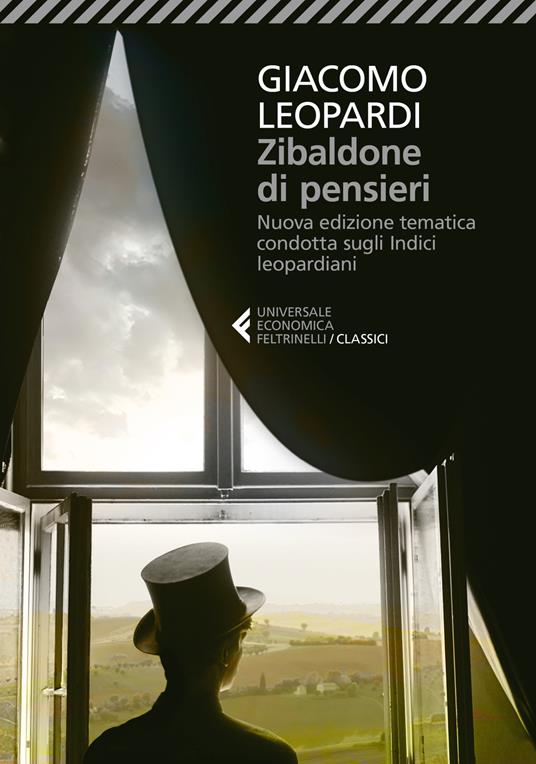Zibaldone / Zibaldone
 “>
“>
Autor:
Giacomo Leopardi
Country:
Italy (IT)
Book Theme:
Poets representing your country poetry
Publisher:
Feltrinelli
Publishing Year:
2019
Leopardi was an Italian poet, philosopher renowned for his intellectual brilliance and poetic genius. Born in Recanati, Italy, Leopardi was a precocious child who showed an early aptitude for languages and literature. Despite struggling with poor health and familial constraints, he pursued a rigorous self-education. Leopardi’s literary output encompasses a diverse range of genres, including poetry, essays, and letters. His poetry, characterized by its profound melancholy. His philosophical reflections, collected in the monumental “Zibaldone,” explore themes such as the nature of existence, the limits of human knowledge. Leopardi’s life was marked by personal tragedy. He struggled with chronic illness and unrequited love, which exacerbated his sense of alienation and despair.
National Award for Children’s and Young People’s
Abstract
The “Zibaldone” is a literary work by Giacomo Leopardi. It is essentially a collection of Leopardi’s thoughts and observations on a wide range of topics, including philosophy, literature, language, history, science The word “Zibaldone” roughly translates to “hodgepodge” or “miscellany,” reflecting the eclectic nature of the text.Written over the course of Leopardi’s lifetime, the “Zibaldone” represents his intellectual diary, capturing his innermost musings and intellectual pursuits. It is a monumental work that showcases Leopardi’s erudition, wit, and profound engagement with the philosophical and cultural currents of his time. Leopardi’s “Zibaldone” covers a vast array of themes, from the nature of existence and the human condition to the role of poetry and literature in society. He grapples with questions of mortality, suffering, and the limitations of human knowledge, often adopting a skeptical and pessimistic outlook. Yet, amidst the existential angst, Leopardi’s prose is imbued with a poetic sensibility, characterized by its beauty, elegance, and emotional depth.One of the central concerns of the “Zibaldone” is Leopardi’s exploration of the concept of “necessity” (necessità) and its implications for human life. He argues that human existence is governed by an inescapable fate, marked by suffering, disillusionment, and ultimately death. This theme of necessity pervades Leopardi’s reflections on love, happiness, and the pursuit of meaning, lending the “Zibaldone” a sense of tragic grandeur.Despite its philosophical density, the “Zibaldone” is also replete with personal anecdotes, literary criticism, and linguistic observations. Leopardi frequently engages with classical and contemporary authors, drawing inspiration from sources as diverse as Homer, Dante, and Shakespeare. His keen insights into language and literature reflect his profound appreciation for the power of words to convey meaning and evoke emotion. Its rich tapestry of ideas continues to captivate.



